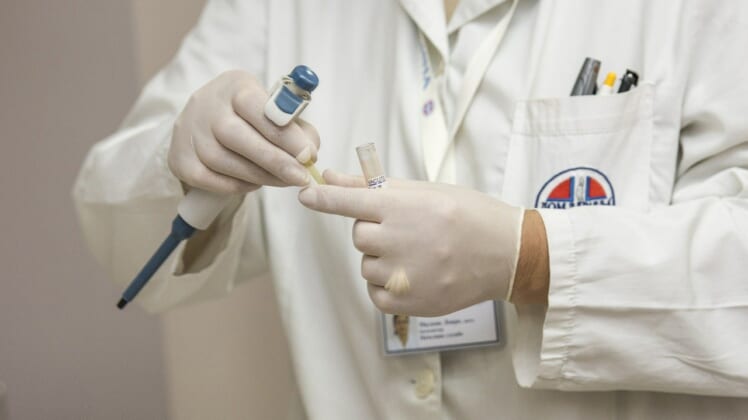
The symptoms of novel coronavirus have been described to be similar to the flu or a mild cold, leaving millions to wonder if their cough or scratchy throat are symptoms of COVID-19, or enough to warrant a visit to the doctor’s office.
Symptoms of COVID-19 include fever, cough and shortness of breath, and may appear within two to 14 days after being exposed to the virus.
Another early symptom that people should watch for are gastrointestinal issues, according to a study published in The American Journal of Gastroenterology.
The study, which was conducted by Chinese researchers, looked at data from 204 coronavirus patients in China’s Hubei province, and found that 99 of them presented with “one or more digestive symptoms as their chief complaint.”
The symptoms included diarrhea, vomiting and abdominal pain.
But should any of these symptoms develop, there are steps you should take to protect yourself and others before heading to the doctor or emergency room that will also help protect the nation’s health care systems, the Centers for Disease Control and Prevention (CDC) says.
“In parts of the country, the health care system is already stressed to the breaking point,” Dr. Jay Butler, CDC’s deputy director for infectious diseases, said in a Webinar on Wednesday.
Butler urged people to avoid running to their local emergency room for a runny nose, and to call ahead to the doctor to describe symptoms and get additional instructions on what to do if necessary.
“In terms of people who get ill with respiratory illness, there are two thoughts,” he said. “We’re still in the flu season, so most likely it will be something other than COVID-19, and if it is COVID-19, it will be a mild illness.”
Butler said to be aware of symptoms such as a fever, shortness of breath and tightness or fullness in the chest, but that when they develop to call for help rather than rushing out the door.
“If those develop, pick up the phone and either call the provider or the emergency room in advance so you can get instructions on how to come into the health care systems without exposing others,” he said.
Butler added that many hospitals have conducted exercises to prepare for a flu pandemic and that most of those tools will be useful in handling an influx of COVID-19 patients.
It’s also important to remember, Butler said, that despite the number of hospital beds and medical professionals that will be needed for COVID-19 illnesses, other emergencies such as car accidents, broken bones and cardiac events will still occur.
“For elective procedures, or office features that may be able to be deferred – this is the right time do to that,” he said. “For the general public, understand that this is how we keep the health care system robust and able to take care of people who get sick with COVID-19.”
